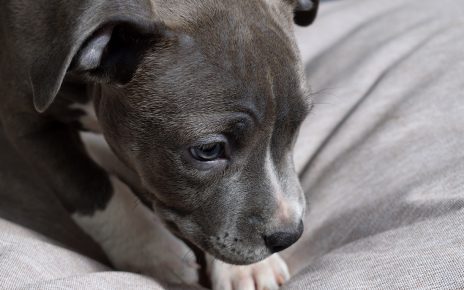As a beauty journalist, I am in what some might call a rut. For years, I have made it my mission to give people as much information as possible of as many beauty products as possible so that they can make an informed decision on what to buy. However, in recent years, the amount of choice has increased dramatically. There are more beauty brands and products than ever before, and it’s virtually impossible to keep up with.
My rut, however, is not founded in pressure to keep up, but rather the pressure to sell. You see, just like in virtually every aspect of our lives, the over-consumption of beauty products is getting somewhat out of hand. We have ten-step routines, multiple cleansers, countless serums and drawers full to the brim of makeup. The truth is it shouldn’t need to be this way.
And this level of overconsumption is far from our fault. You see, if the beauty products we bought actually worked, we might not feel the need to continue buying more. The bigger issue of sustainability in beauty right now is not down to simple things such as recyclable packaging and ‘biodegradable’ (which, by the way, in practice rarely are), but rather the amount of products being produced and consumed. The global beauty industry products more than 120 billion units of packaging every year, with the majority ending up in landfill and carbon emissions being produced with every manufacturing, shipping, and shopping process. It begs the question: How eco can a new, seemingly sustainable product really be?
So, with every beauty product I recommend, I feel as though I have the weight of the world (quite literally) on my shoulders. Because of this, when it comes to ‘eco’ beauty products, I am incredibly sceptical. Sure, the packaging can be recyclable, refillable, and the ingredients locally-sourced, but if it doesn’t work, that product is doing little more than negatively contributing to a very serious problem.
And so, over the past few months, I have made it my mission to source the very best, most efficacious eco beauty products. They may not appear as sustainable as you might think at first, but their pledges and behind-the-scenes programmes make for a much better beauty world. And the best bit? They actually work. Keep scrolling for the best eco beauty products out there.
The Body Shop has always been a big player in the sustainable beauty game and, if you ask me, does a great job as delivering eco-conscious products that actually work. Earlier this year, the brand relaunched their famous Body Butter. The new packaging is totally recyclable (just check up on your local facilities) and is made with an easily recyclable aluminium lid and a 100% recycled tub. The recycled plastic used is also Community Fair Trade. This new scent is fresh and is made with 96% ingredients of natural origin. On another note, The Body Shop is also rolling out a nationwide in-store refill system this year for its shower gels, hand washes and shampoos/conditioners – so keep an eye out in your local store.
KANKAN is a totally game-changing brand. Sure, the products are vegan and plastic-free, but it’s the circular nature of the concept that wins it brownie points. With every starter set, you receive a refillable bottle (this L.F. Markey collab is dreamy) and an aluminium can – a material that can be used over and over again through recycling – containing the product. Choose from body washes and hand washes that smell as dreamy as they look. Plus, for every can they sell – they also plant a tree!
Deodorant is considered one of the most eco-unfriendly beauty products around. Most people use deodorant every day and the products are incredibly hard (read: impossible) to recycle in at-home bins. Over the years, some impressively eco-conscious natural deodorants have come to market. The issue? Out of all of the ones I’ve tried, none of them actually work. Except for this one. Fussy offer all-natural, refillable deodorants that genuinely do work. The refills are plastic-free and the brand is certified carbon neutral. What more can you ask for?
Refills are set to play a big part in helping the beauty industry become more sustainable. However, the concept has some flaws. Currently, most big beauty brands that provide refill options use packaging that uses less plastic but isn’t necessarily recyclable or helping the bigger picture. Susanne Kaufmann’s new refill products, however, come packaged in 100% recyclable, lightweight bottles. It’s the same products we’ve always loved, just in more eco-conscious packaging. This simple cleansing gel is one of my all-time favourites for a daily cleanse.
Despite knowing that solid beauty products are much better for the planet, something about using them has always seemed like extra effort. However, this particular cleansing bar is nothing but a joy to use. It foams but is gentle enough that it doesn’t leave the skin feeling tight and uncomfortable. All of SBTRCT’s products are, of course, totally plastic-free, but they also contain less than 0.5% water which is a total feat.
At first, I was sold on the way this shampoo looked, I’ll admit. It’s simple, minimal packaging makes it the perfect shower shelf accessory. It helps that it’s also the ultimate everyday shampoo, thanks to its gentle cleansing agents. The best bit though is that it’s 100% carbon-neutral.
I’ll be honest, it’s hard to find skincare products that are good for the planet and your skin. Typically, the best skincare products tend to be lab-formulated and highly scientific. However, this simple moisturiser has helped prove my theory wrong. It’s lightweight and cooling but delivers a hearty dose of nourishment too. The brand is also doing an impressive amount to help combat sustainability issues. The aim of the game is to create a closed loop economy, where everything is shared, repaired, reused or recycled. Boxes are plantable, packaging is compostable and/or recyclable and made from 100% post-consumer materials.
Water plays a huge role in the success of many beauty products. Whether it makes up the majority of the formula or helps in the manufacturing process, without water, our beauty products wouldn’t be what they are. However, when water is added to products in the manufacturing stage, it makes them weighty, therefore contributing massively to shipping emissions. This clever stuff eliminates that problem. The product arrives in powder form, in small sachets. Simply add water from your tap at home and you have one of the most luxe hand washes I’ve ever experienced.
We’re big fans of Neighbourhood Botanicals here at Who What Wear. Not only are the vegan and cruelty-free products fantastic, they look seriously chic too. This new calming face lotion is a treat for the skin, delivering essential moisture and nourishment without feeling greasy. As a company, Neighbourhood Botanicals is wholeheartedly committed to sustainability and is the UK’s first ‘carbon negative’ beauty brand.
This shampoo is ideal for my limp, lifeless hair. In fact, I was sold on the product before I even knew about its eco credentials. The brand founded Plastic Free Beauty Day (which took place on 17th June), and this pourable product contains no pump and therefore no plastic. Housing products in aluminium instead of plastic means the packaging can be infinitely recycled.
As one of the most well-known and popular brands on this list, Ren Clean Skincare are heralded as torch-bearers for eco-beauty. They’re starting to make the switch to PCR plastic across their products (this wonderful clarifying cleanser is one of products they’ve repackaged), contribute massively to ocean clean-up efforts and have recently launched aluminium sample tubes (plastic beauty samples are deemed a huge unnecessary waste in the industry). And sure, Ren doesn’t have the luxury of being as sustainable as some of the smaller brands on this list due to its mass nature, but as far as big brands go, it’s doing the most. In fact, in a bid to prove its commitment to the cause, the brand launched its #WeAreAllies campaign earlier this year alongside Biossane, Caudalie, Herbivore and Youth To The People. The campaign aims to put aside competition differences and work together to help better the impact of beauty on the planet.
Another big player, Garnier is also doing its bit to help the planet. Earlier this year, it become vegan-accredited and is now looking to minimise plastic waste and use renewable energy sources. These shampoo bars are zero-plastic and last way longer than any bottled shampoo I’ve ever used. Plus, this delicate oat scent left my fine hair strong and silky after just one use.
These lipstick are genuinely incredible. Creamy and wearable all day long, they prove to be favourites in my collection. As a brand, HIGHR offsets all of its operational carbon, utilise metal packaging, use solar energy to formulate its products and donate £1 for every waitlist submission to ocean plastic clean-up efforts. In essence, this makeup brand prove to bigger brands that these sorts of eco promises can (and should) be met.
At the start of this year, Aveda announced that all of its products were 100% vegan. On top of that, more than 85% of its huge offering of skincare and hair products contain 100% post consumer recycled materials (and they’re working on the rest). Where they can’t use PCR plastic, they are incorporating bioplastics (made from sugarcane stalks which are a by-product of sugar production)) which are quickly renewable. Again, compared to smaller beauty brands, Aveda has a long way to go, but commitments like these make all of the difference. Plus, this Botanical Repair Shampoo is quite possibly the best shampoo I have ever tried. Think lightweight volume and seriously fortified strands. Next up, 5 sustainable beauty brands I’d definitely recommend.





